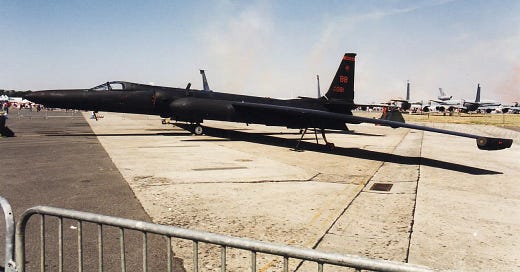(First published on February 2, 2022)
First in a four-part series
TOKYO — Early 1960s work at the Elint – electronic intelligence – Center, on Fuchu Air Base near Tokyo, quickly became monotonous and tiring, as I personally found as a U.S. Air Force analyst. For U-2 missions you had to sit there for 12 hours at a stretch, three times a week, and watch the same signals appear and disappear.
But there was an underlying tension because of the high-priority nature of the work; and the all too frequent reminders of just how dangerous it was for the pilots who flew the missions.
Keep reading with a 7-day free trial
Subscribe to Robert Whiting's Japan to keep reading this post and get 7 days of free access to the full post archives.




